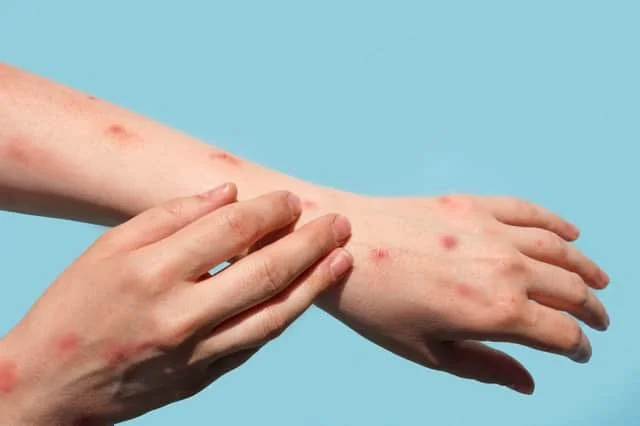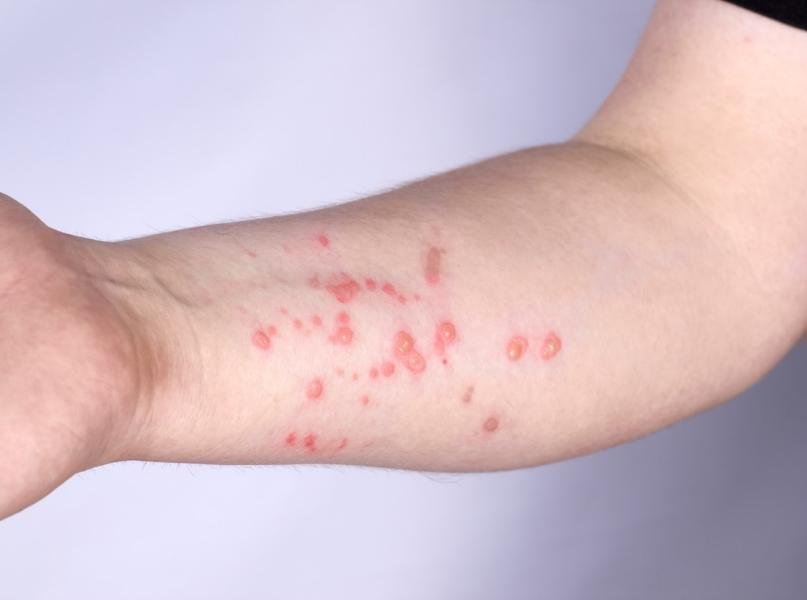Monkey Pox
We’ve been hearing a lot about Monkey Pox in 2022. I have seen patients who were suspicious that they might have it and some who were suspicious of something but were unaware that it could be monkeypox. To date I have seen two patients who, after consultation, examination and tests, did conclusively have Monkey Pox.
While infection with Monkey Pox in the current global outbreak is typically mild and rarely fatal, symptoms can be painful. Thankfully it has not proven as transmittable or as deadly as corona virus.
In this blog I’m going to look at what Monkey Pox is, how I would identify symptoms, how it is spread and how it is treated. Much of this clinical information is sourced from uptodate.com
So what is Monkey Pox?
Monkey Pox virus is an orthopoxvirus that is in the same genus as variola (causative agent of smallpox) and vaccinia viruses (the virus used in smallpox vaccine). Most cases of monkeypox have occurred in Central and West Africa. However, an ongoing outbreak associated with person-to-person transmission was first reported in May 2022 and has involved thousands of individuals in dozens of nonendemic countries.
The infection continues to spread, but because transmission requires close personal contact, the rate is much slower than that of SARS-CoV-2 virus (the coronavirus that causes COVID-19) and causes fewer cases.
Monkey Pox may be most severe in young children, especially if they have poor nutritional status. In previous years fatal cases have occurred, primarily among children in Africa.
What are the symptoms of Monkey Pox?
If you have Monkey Pox you would likely develop a rash that is similar in appearance to smallpox. The rash of monkeypox can also be similar in appearance to more common infectious rashes, such as those observed in secondary syphilis, herpes simplex infection, and varicella-zoster virus infection.
The rash is usually a 0.5 to 1.0 cm diameter circular ulcer that then turns black and eventually crusts over and falls off.
Monkey Pox also has other symptoms related to the virus in your blood stream. These include swollen lymph nodes, fever, and a rash that may initially be mistaken for chickenpox or a sexually transmitted disease if in the genital or anal region.
It is considered as a sexually transmitted infection and is often a result of a recent sexual encounter with someone who has the virus.
How is it diagnosed?
Doctors can identify Monkey Pox with a sample of fluid swabbed from the rash. They may need to rule out other rash-producing illnesses such as chickenpox, measles or syphilis, as well as screen for sexually transmitted diseases such as HIV, syphilis and others.
How is the infection spread?
Of note, people who do not have symptoms of Monkey Pox cannot spread the virus to others.
Monkey Pox is spread by close contact and exposure to an infected person's respiratory droplets, skin lesions or bodily fluids.
It’s also possible for people to get monkeypox from infected animals, either by being scratched or bitten by the animal or by preparing or eating meat or using products from an infected animal.
What are the protocols around monkeypox infection control?
Patients with Monkey Pox virus should be isolated in a room or area separate from other family members and pets. This is particularly important for persons with extensive lesions that cannot be easily covered (excluding facial lesions) and those with respiratory symptoms. If around others, skin lesions should be covered (eg, long sleeves, long pants) to minimize risk of contact with monkeypox lesions.
Individuals with Monkey Pox should also wear a facemask; ideally, household members should wear a facemask when in the presence of the person with monkeypox as well.
Household members providing care to patients with Monkey Pox should use disposable gloves for direct contact with lesions. The gloves should be disposed of after use, followed by hand hygiene with an alcohol-based hand rub or, if visibly soiled, with soap and water. Disposal of contaminated waste (such as dressings and bandages) should be determined in consultation with state or local health officials.
Hand hygiene should also be performed regularly by infected individuals and by household contacts after any unprotected contact with lesions or potentially contaminated surfaces.
The WHO suggests consistent condom use during any sexual activity for 12 weeks after recovery. Monkeypox virus can be found in semen and vaginal fluids, and the role of sexual transmission of monkeypox virus is still being evaluated.
If I have Monkey Pox when should I discontinue isolation?
Persons with Monkey Pox should be considered infectious until all lesion scabs have fallen off and re-epithelialization has occurred, which typically lasts two to four weeks. Decisions regarding discontinuation of isolation precautions in both the health care facility and the community should be made in consultation with your doctor.
How is monkey pox treated?
It is important to note that many patients with Monkey Pox have mild disease and will recover without medical intervention.
The majority of patients with monkeypox can be cared for at home in the community. Such patients should not leave the home except for follow-up medical care so as to prevent the spread of the infection further.
Some patients may require pain relief medication (eg, for pain related to proctitis or tonsillitis).
Vaccines can prevent Monkey Pox. They are currently in short supply and being used to prevent Monkey Pox disease in people who have been exposed to the virus. When it becomes more widely available, the vaccine may be appropriate to protect at-risk populations.
Supportive care requiring hospitalisation may be warranted for those who have or are at risk for dehydration (eg, nausea, vomiting, dysphagia, sever tonsilitis), those who require more intensive pain management, and those experiencing severe disease or complications.
What about antiviral therapy?
Several antivirals may be useful for the treatment of Monkey Pox. Some of these drugs were approved for treatment of smallpox based on animal models and dose and safety studies in healthy humans but are expected to have the same activity against Monkey Pox. At this time, tecovirimat is the treatment of choice.
I think I might have monkey pox. What do I do now?
If you are concerned that you might have monkey pox and would like to speak to one of our doctors then feel free to book an appointment online HERE.
If we are concerned about Monkey Pox we will either refer you locally to the sexual health clinic or if you prefer we can organise a home test of your lesions confirm the diagnosis then discuss with the infectious disease doctor on call regarding any further follow-up.
Monkey Pox is a notifiable disease and so we are obliged to contact Public Health to alert them to all cases of Monkey Pox.




